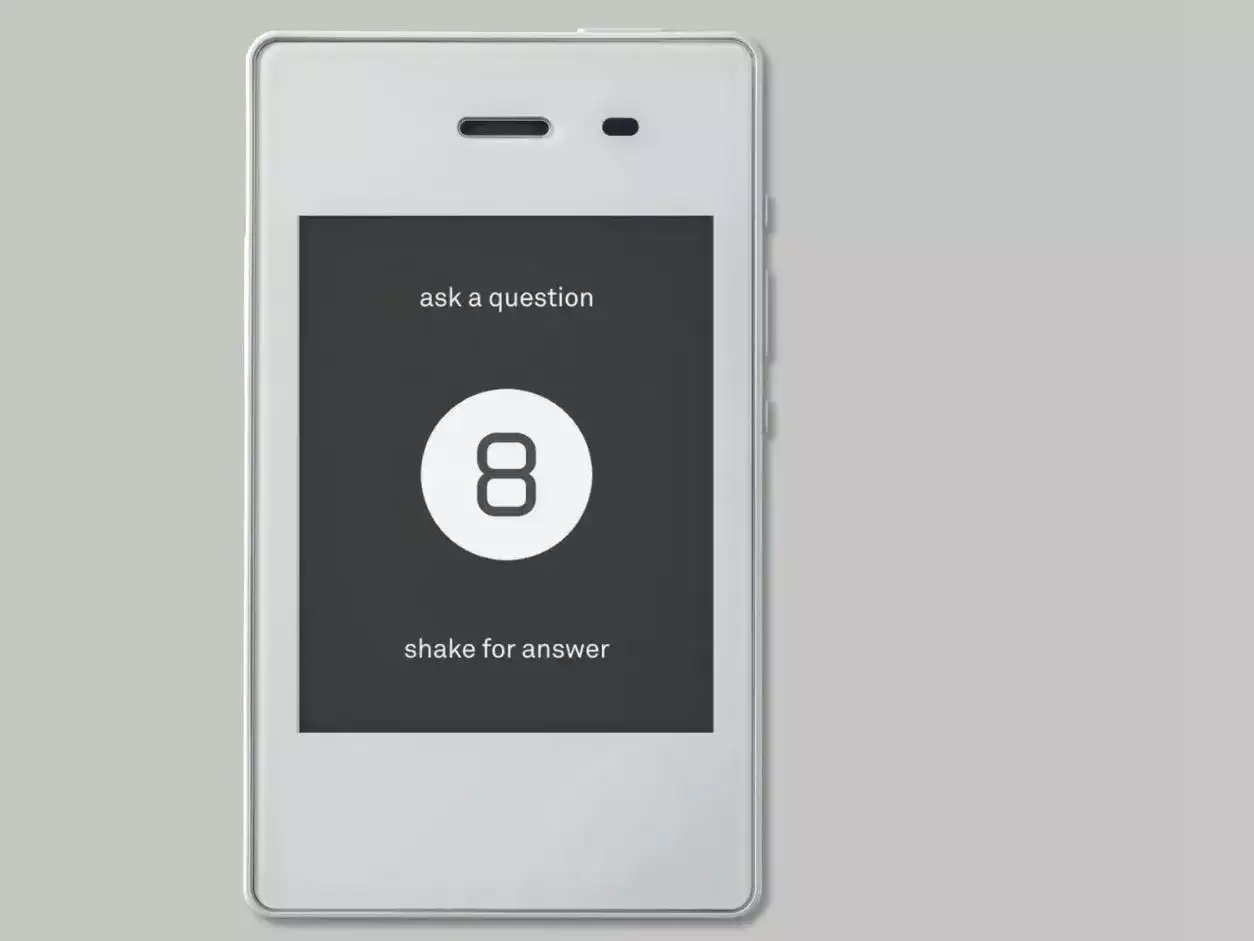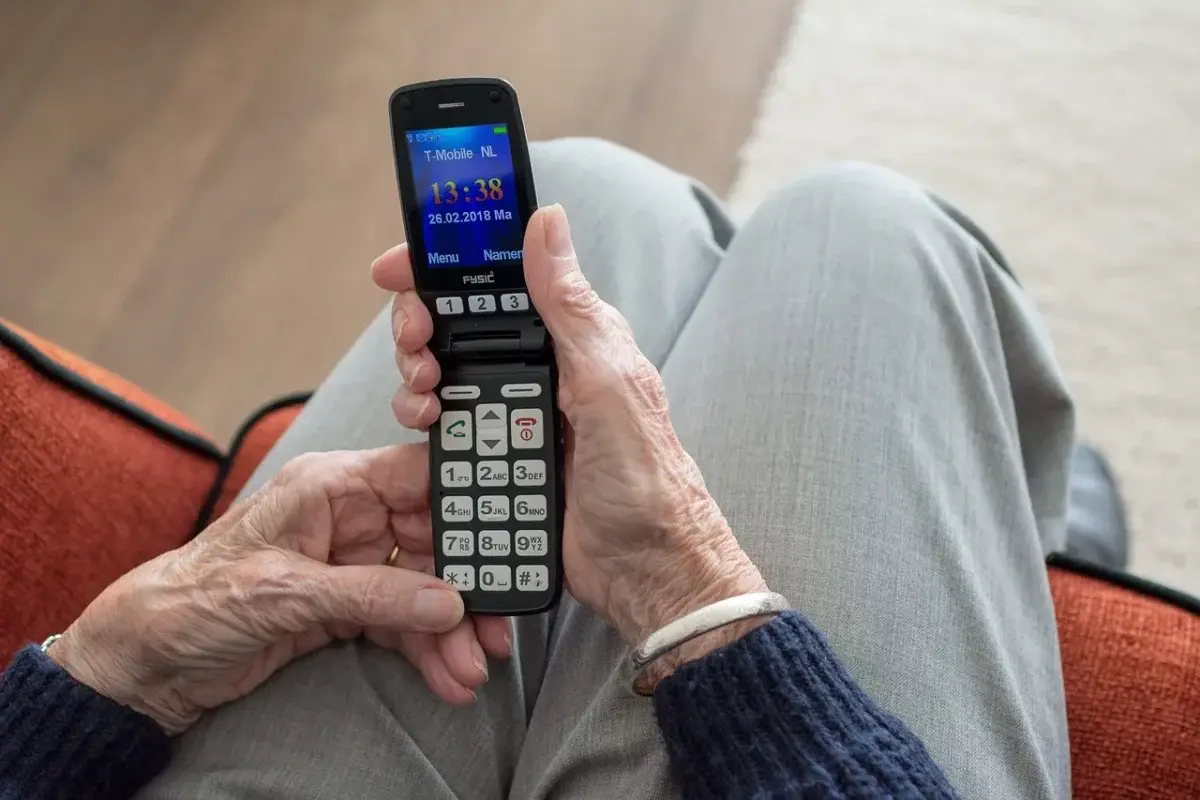In a world dominated by increasingly powerful smartphones, a curious trend is emerging: the rise of the “dumb phone.” These pared-down devices, stripped of the Internet and sophisticated apps, harken back to a simpler era of communication. But why, in an age of hyper-connectivity, do people choose to disconnect? This article delves into the counter-movement to dumb phones, exploring the potential users, the benefits they offer, and the future of this intriguing trend.
The Appeal of Simple: Diving into the Dumb Phone Renaissance
Reaction against digital noise
The smartphone revolution has undoubtedly transformed our lives. Information is at your fingertips, connectivity is constant, and the possibilities for entertainment are endless. However, this constant connectivity comes at a price. Many users struggle with feelings of overwhelm, addiction, and constant pressure to be “on.” The relentless stream of notifications, the lure of social media and the fear of missing out (FOMO) can be a significant source of stress and anxiety.
The dumbphone movement represents a backlash against this digital noise. By removing nonessential functions, these devices offer a chance to regain focus and control over time and attention. They prioritize clear calls, reliable texting, and maybe some basic features like music or camera. This allows users to stay connected in a more conscious way without succumbing to the distractions of the digital world.
Who is giving up the smartphone?
The appeal of dumb phones spans generations. For those who grew up before the smartphone revolution, these devices offer a familiar and convenient way to communicate. They can be particularly attractive to:
-
Digital Detox Seekers: People overwhelmed by the constant demands of the digital world find solace in the simplicity of the dumb phone. It allows them to disconnect, regain control of their time, and reconnect with the real world around them.
-
Parents and children: Concerned parents are increasingly looking for ways to limit their children’s screen time and exposure to potentially harmful online content. Dumbphones offer a safer and more controlled way for children to stay in touch with family and friends.
-
Professionals looking for focus: In today’s fast-paced work environment, professionals struggle to stay focused amid constant digital distractions. Dumbphones can help them prioritize work tasks and improve their productivity.
-
Old people: For older adults who may find smartphones confusing or complicated, dumb phones offer an easy-to-use and reliable way to stay connected.
The Allure of the Easier Life: The Benefits of the Dumb Phone Revolution
The benefits of adopting a dumbphone go beyond simply avoiding digital distractions. Here are some key benefits:
-
Improved mental well-being: By reducing screen time and social media exposure, dumbphones can help alleviate the stress, anxiety and feelings of inadequacy often associated with excessive smartphone use.
-
Improved Relationships: Dumbphones encourage face-to-face interaction and more thoughtful communication. Users are more present in the moment during conversations, fostering stronger connections with loved ones.
-
Increased productivity: Without the constant lure of social media and news feeds, dumbphone users can better focus on the tasks at hand, resulting in increased productivity.
-
Increased confidence: Relieving the pressure to craft a perfect online persona can boost self-confidence and self-esteem.
-
Financial savings: Dumbphones are often significantly cheaper than smartphones, both in terms of device price and data plans.
A look into the future: Will dumb phones make a comeback?
The dumbphone movement is unlikely to replace smartphones entirely. However, this represents a growing desire for a more balanced relationship with technology. Here’s a look at what the future may hold:
-
Hybrid devices: Manufacturers can develop hybrid devices that offer basic dumbphone features with limited internet access or specific app capabilities.
-
Digital detox havens: The popularity of vacations and digital detox programs may encourage the development of dumb phones specifically designed for these experiences.
-
Market niches: Dumbphones may find a permanent niche among certain user groups that prioritize simplicity and focus.
The rise of the dumb phone means a growing awareness of the shortcomings of our hyper-connected world. It’s a call for a more mindful approach to technology that prioritizes well-being and encourages a deeper connection to the real world around us. While the future of this trend remains to be seen, one thing is certain: the appeal of a simpler life is undeniable.

Challenges and Considerations: The Other Side of the Dumbphone Coin
Although the dumbphone movement offers a fascinating alternative, the adoption of this technology is not without its challenges. Here are some factors to consider:
-
Limited functionality: For those who are used to the enormous capabilities of smartphones, the lack of access to the Internet, applications and functions such as navigation or online banking can be a significant drawback. Dumbphones may not be suitable for everyone’s everyday needs.
Gizchina News of the week
-
Social disconnection: In a world where communication and information sharing often happens online, relying only on a dark phone can lead to a feeling of disconnection from friends, family and professional networks.
-
Operating limitations: Many workplaces increasingly rely on digital communication and collaboration tools. Using a dumbphone may interfere with the work productivity of some professionals.
-
Safety considerations: Dumbphones may not have features like emergency location services that are commonly found in smartphones. Users may need to find alternative ways to ensure safety and security.
-
Application Dependency: Some basic services, such as banking or arranging transportation, have come to rely on a smartphone applications. Switching to dumbphone may require alternative ways to access these services.
A more mindful relationship with technology: The take-home takeaway
The rise of the dumbphone does not advocate a complete abandonment of technology. This is a call for a more careful and balanced approach. Here are some key takeaways:
-
Technology is a tool: Dumbphones are a reminder that technology should enhance our lives, not control them. We need to control how we use our devices.
-
Focus on what matters: Dumbphones encourage us to prioritize what really matters—meaningful relationships, focused work, and awareness of the present moment.
-
Finding the right balance: The ideal scenario may lie in finding the right balance between a smartphone that meets specific needs and a dumb phone for more focused activities.
-
Well-being priority: After all, technology choices must support our well-being. If a smartphone causes stress or hinders productivity, a dumb phone may be the answer.
So the nerd movement highlights a growing desire for a more intentional relationship with technology. Whether it’s full transition or strategic acceptance, choice offers an opportunity to regain control, prioritize well-being, and maintain a more conscious existence in a hyper-connected world.
Tips and tricks for thriving with Dumbphone
Embracing a dumbphone can be a liberating experience, but it also requires some adjustments. Here are some tips and tricks to help you navigate this new approach to technology:
Planning and preparation:
-
Identify your needs: Start by evaluating your smartphone usage. What characteristics are essential? Can you find alternatives for the others? This will guide your choice of dumbphone functionalities.
-
Embrace the analog world: Dust off your calendar, address book and notebook. These low-tech tools can be surprisingly effective for organization and communication.
-
Inform your circle: Notify your loved ones and colleagues about your switch to a dumb phone. Explain how they can best contact you and be prepared for potentially slower communication.
Maximize your Dumbphone experience:
-
Satisfaction with the main functions: Embrace the simplicity of calling, texting, and limited features. Find joy in the act of focused communication.
-
Use workarounds: Explore alternative ways to access essential services. Can you use a laptop for online banking or rely on public transportation instead of ride hailing apps?
-
Plan your connectivity: Decide on specific times to check email or social media using a computer instead of constant smartphone access.
-
Use additional devices: Consider carrying a camera or dedicated music player if those features are important to you while keeping your dumbphone focused on communication.
Maintaining connections:
-
Scheduling phone calls: Set aside specific times to catch up with loved ones instead of relying on instant messages. This can encourage deeper and more meaningful conversations.
-
Group Texts: Use your dumbphone’s group messaging features to keep in touch with larger groups and avoid the need for social media updates.
-
Personal interactions: Not having a smartphone can be an opportunity to prioritize face-to-face interactions. Make plans to meet friends and family in person.
I remember:
-
This is a trip: Switching to dumbphone can take time and setup. Be patient with yourself and celebrate the small victories.
-
Find your balance: There is no one-size-fits-all approach. Experiment and find what works best for you, whether it’s a complete switch or strategic use of dumb phones and smartphones.
Take advantage of the benefits:
-
Enjoy the freedom: Enjoy the feeling of being unplugged and present in the moment.
-
Increase your productivity: Focus on tasks without distraction and experience a sense of accomplishment.
-
Improve your well-being: Reduce stress, anxiety and FOMO by taking control of your technology use.
By following these tips and tricks, you can thrive with a dumbphone and cultivate a more mindful relationship with technology. So, let it be a tool that enhances your life, not control it. Embrace simplicity and rediscover the joy of focused communication and being in the present moment.







